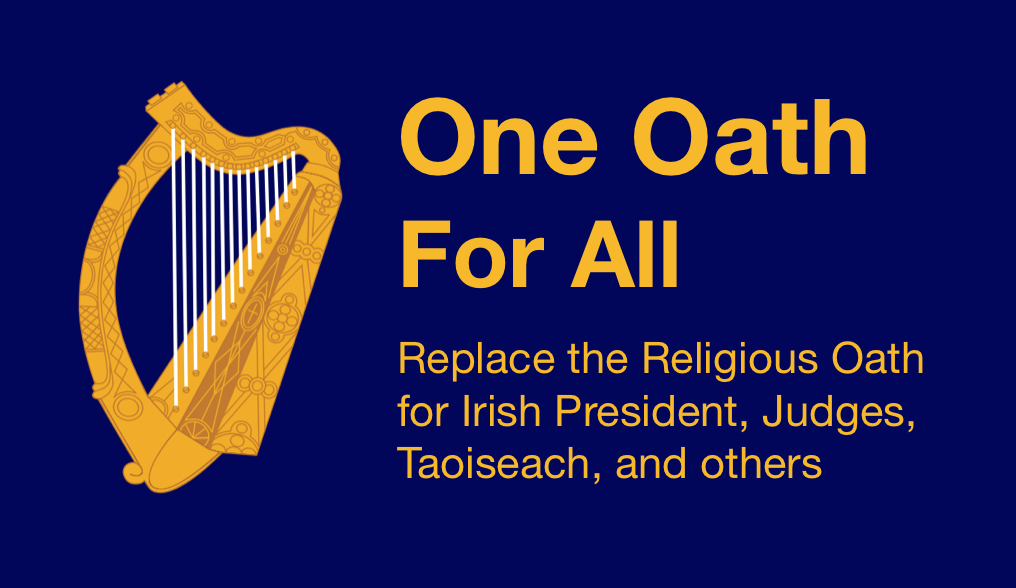
The removal of religious oaths for people making affidavits is a welcome half step in the direction of removing all religious oaths from State activities in Ireland.
The Law Society has correctly noted that these oaths are contrary to the right to privacy. But witnesses and jurors will still have to swear on a Bible, or else publicly decline to do so, when giving evidence directly in court.
This not only breaches their right to privacy, but it could also prejudice jurors for or against them.
Also, Judges, the President, and members of the Council of State (which includes the Taoiseach, Tanaiste, and other office holders) have to swear a religious oath, without exception, in order to take up their offices.
If instead, any public office holder had to swear that there is no God, everybody would realise that this would be a breach of their rights. But there is a blind spot when the discrimination is the other way around.
These public office-holders should make a single declaration of loyalty to the Irish Constitution, State, and people, that does not reveal anything about the person’s religious or nonreligious beliefs.
The 1996 Constitution Review Group raised the difficulty of judges swearing alternative oaths. This would undermine the impartiality of the justice system, by creating the impression that Ireland had religious judges and non-religious judges.
Atheist Ireland has campaigned for a decade to end these discriminatory oaths, with the support of the United Nations Human Rights Committee. It is fundamental to democracy that all citizens are treated equally regardless of our religious or nonreligious beliefs.
I think the religious oath should be maintained but that conscientious objectors should be able to apply for an alternative secular oath if they are agnostic or athiest.
That does seem reasonable on the surface, Gavin, but it forces atheists (and minority faith members) to disclose their private beliefs, which goes against their right to freedom of conscience and privacy.